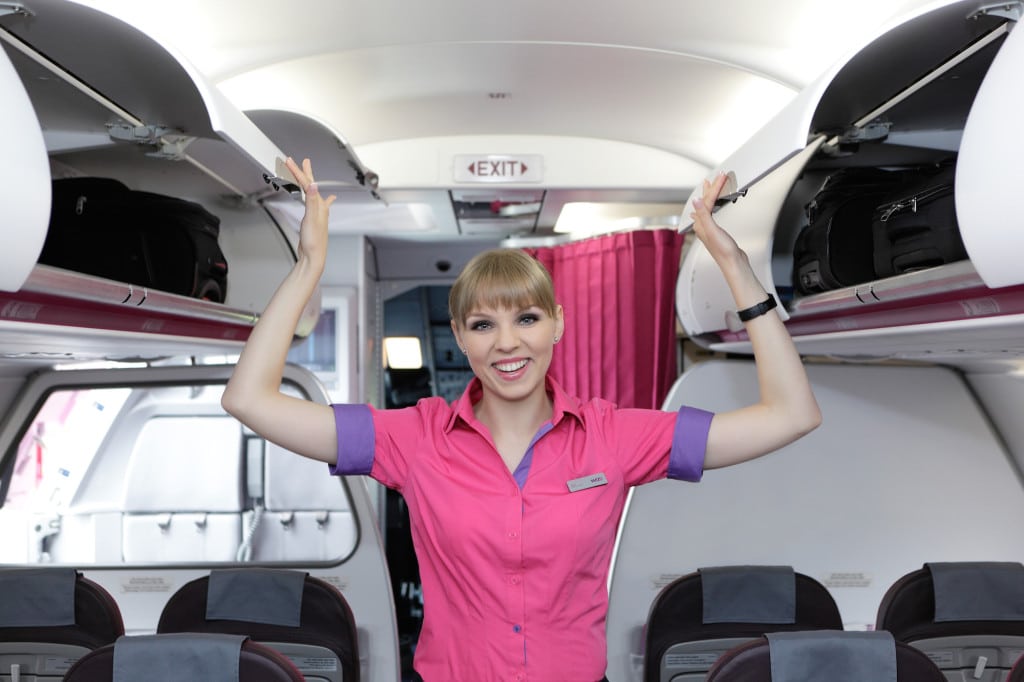Skift Take
Vararadi seems to follow Baldanza’s example for Ultra-Low Cost Carrier success with Spirit to the letter, creating new flyers with little more than low fares and a smile.
Speaking at the World Low Cost Airlines Congress in London, Wizz Air, CEO Joszef Varadi, explained why in the long-run, for the short-haul market, maintaining low costs and low fares is key to the survival of an airline.
“Cost is critical,” Varadi said. “This is a business which is becoming a commodity. Short-haul flying is a commodity. This is like the Wall-Marts, the Aldis in the UK. That’s my background, the business I came from. If that’s the case the business must remain focused on costs because otherwise you will have a problem sooner or later.”
A Smile Does Not Cost Money
Varadi believes Wizz Air’s ultra low-cost model should be flyer friendly, but it mustn’t be wasteful.
“We have always said that a smile does not cost money, and we have always approached the customer experience side of the business in a positive way. We don’t have to make the corrections that Ryanair has recently been making,” Varadi said. “We remain focused on the customer experience.”
But the customer experience improvements must come from personal attention and from digital innovations to simplify the bookings and travel process. They won’t come from service or product extras.
Varadi believes Wizz Air is growing a customer base by making flying affordable, creating new customers with a lower barrier for entry. “I think we’re an airline that keeps expanding its core,” he said.
Ancillary revenue is key to diversifying the business and supporting that growth, he explained. “We have 26 Euros in ancillary revenue per passenger. That goes beyond the scope of being, strictly an airline. We want to keep growing it because that enables us to keep competitive fares and being more competitive in the market place and being able to stimulate more franchise by getting people into it.”
Keep Investors Smiling Too
Wizz Air has recently gone public, which infused the organization with the capital it needed to acquire new A321 aircraft that help lower its operating costs per seat by 10%-15%, Varadi said. The public offering came with some fanfare and the reveal of a refreshed brand image, but it has also made Varadi sensitive to the needs of his stockholders when designing the airline’s product and service offerings. That leaves no room for perks, beyond a welcoming smile.
“The lower the cost of business is, the higher margin it can produce, and the more shareholder value it creates. That’s the very clear, linear, mathematic world correspondence. You see it in the U.S., you see it with Ryanair in Europe. It’s very important to recognise that, if you want to create shareholder value, you need to retain very low costs,” Varadi said. “The moment that you start adding, and thrilling passengers, you start putting pressure on your margin performers, and you start lowering shareholder value.”
Flying NextGen
But, Varadi suggests, newer generations of flyers are less focused on the extras that older generations expect with their ticket. He believes younger flyers are more attracted by low-fares and other digital features which make travelling by air convenient.
“The world has changed around us and keeps changing around us. The new generations coming to the market are very different than older generations. The old generations used to go to full operators, getting personal advice, now everything is separate on the internet, on various devices. The smart phones are changing the game, as well as the specific technologies.”
“We, as an industry, have to be geared up for that and very focused on that. We are very focused on trying to understand these consumer trends and conduct the business accordingly. That requires continuous innovation and continuous development in the process. Fundamentally, you must remain an ultra-low cost business, not only because of the market, but also because of the way you can create value in the industry.”
In Good Times, Prepare for Bad
Varadi sees the marketplace today as positive, buffered in part by lower fuel costs, and believes there is a risk to airlines of forgetting fundamentals that keep them flying during market reversals.
“These are good times, even those legacy carriers that have been losing money over the past 20 years are now in the black,” Varadi said. “I think we all enjoy good times. The real question is, given the state of the industry: how do you use this time to prepare yourself for the weaker times coming? We know this is a cyclical industry and you need to stand on your feet when times are worse.”
Varadi said he focuses more on ensuring that Wizz Air grows its market base, than on whatever competitors are up to.
“I don’t really care about market share, ours or theirs. We keep stimulating the market. This is still a market where people are just starting into the franchise of flying. I’m much more interested in getting those people in. We can do that by offering the lowest fares in the market, so long as we can sustain it by operating the business at the lowest possible cost,” he said.
The key, Varadi said, is to remain open to change and to quickly adapt to new consumer trends.
“You firm up your idea and make plans of what you’re going to do, but life changes around you and you need to stay out of the way,” Varadi said. “It’s more a challenge of how you design the business and the processes of the business that enables you to continuously innovate.”
The Daily Newsletter
Our daily coverage of the global travel industry. Written by editors and analysts from across Skift’s brands.
Have a confidential tip for Skift? Get in touch
Tags: ceo interviews, low-cost carriers, ryanair, southwest airlines, wizz air
Photo credit: A Smiling Flight Attendant on a Wizz Air aircraft. The smile was free, but those bags were probably extra. Wizz Air
